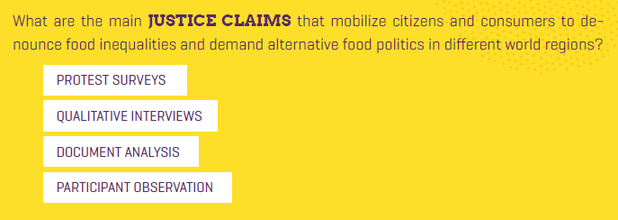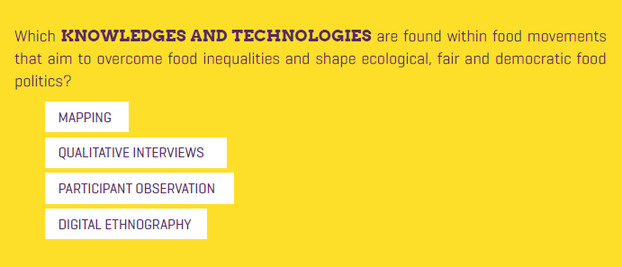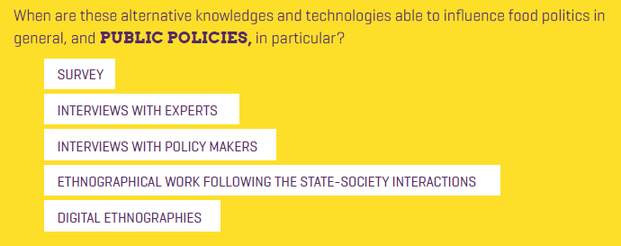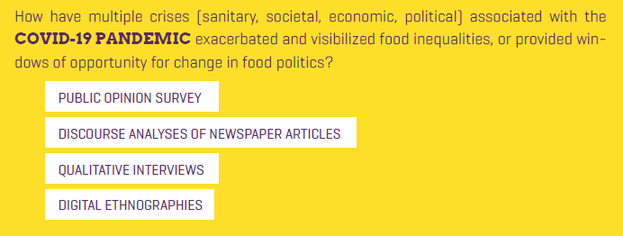Methods
The research questions demand different types of data collection and analysis, and accordingly, a multi-methods approach of both quantitative and qualitative data was chosen.
Thus, the main demands and justice claims in food movements will be assessed through protest surveys, qualitative interviews, document analysis, and participant observation in ethnographic research with social movements.

Knowledges and technologies in alternative food networks and agroecological movements will be first mapped and then further studied with interviews and participant observation.

Policy innovations within the local level will be investigated through interviews with experts, policymakers, and ethnographical work following the state-society interactions.

The impacts of Covid-19 pandemics on food inequalities will be assessed through a combination of public opinion surveys on food insecurity, discourse analyses of newspaper articles covering food and pandemics, as well as digital ethnography and interviews with social movements and alternative food networks in their strategies to react to the pandemic.

For all case studies, there will be data collection such as documents, social media, and visual materials, also drawing on the opportunities for digital ethnographies.
Keywords
- Food for Justice
- SDGs
- Sustainable Development Goals